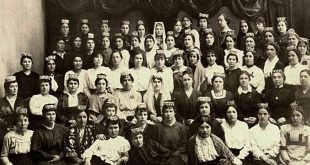This conference, convened by the SENSIS research project at Utrecht University, invites contributions that examine how sensory experiences both shaped and were shaped by religious transformation, mobility, and violence in this pivotal period between the sixteenth and nineteenth centuries.
The religiopolitical landscapes of Islamicate empires were reshaped by the introduction of new destructive warfare technologies and intense ideological propaganda during the early modern period. In this crucial era, collective religious identities were recast in the crucible of prolonged conflicts and contending visions of piety, eschatology, and community. Warfare and rituals were deeply intertwined, as both served performative and symbolic roles in the construction and maintenance of confessional boundaries. These symbolically loaded phenomena served to purify communities of heresy and reinforce distinct religious identities. The ritualization of violence shaped the sensory experience of both warfare and religious ritual. This conference, convened by the SENSIS research project at Utrecht University, invites contributions that examine how sensory experiences both shaped and were shaped by religious transformation, mobility, and violence in this pivotal period between the sixteenth and nineteenth centuries.
By searing the traumatic experiences of battle into collective memory and affecting the psychological and emotional states of both combatants and noncombatants, wars were not only fought on the battlefield but also felt in the streets, in homes, and in the imaginations of people, thereby creating new emotional and sensory communities. Although research on the early modern Islamic world has made great strides in exploring military technology, the mobilization and provisioning of armies, and the relationship between warfare and state-building, the impact of these developments on the sensory regimes and experiences of early modern Muslims remains largely unexplored. This conference aims to address this gap by highlighting how warfare transformed sensory experiences, thereby contributing to a deeper understanding of the sensory dimensions of early modern Islamic societies.
Moreover, apart from the visceral theaters of war, the early modern period saw the rise of states that legitimized themselves through elaborate public rituals, offering new multisensory experiences. Clamorous commemorations, carnivalesque ceremonies, and starkly embodied rituals stimulated and calibrated the senses. New sartorial, sonic, tactile, and olfactory practices enriched the senscapes of war and religious rites. While scholarship has advanced the study of confessionalization in the context of the Ottoman and Safavid empires, the sensory dimensions of public expressions of religious identity formation remain underexplored. Parallel to the theme of warfare, this conference also seeks to highlight how sensory experiences contributed to the formation of religious identities in Ottoman, Safavid, and Mughal contexts.
The conference will address the following key questions:
How did the development and adoption of new military technologies by Muslim dynasties transform the sensory experience of battlefields in the early modern era? How did early modern authors construct, mediate, and express the sensorium of warfare? How did violence reshape the sensory perception of landscapes, sacred spaces, and bodies? In what ways did religious transformations, imperial conversions, and polemical encounters reconfigure the sensory experiences of people? How did they contribute to the crystallization of confessional differences both within and between Sunni and Shia Islamic traditions? How did mobility (particularly pilgrimage, travel, and migration) transform the sensory worlds of early modern Islamicate empires? How can sensory history complement our understanding of broader historical dynamics in the early modern period, such as the formation and development of empires, intercommunal relations, and the transformation of religious practices?
Possible topics for papers include, but are not limited to, the senses in:
- Experiences of violence and war
- The performance of rituals
- Sectarian conflict
- Devotional practices
- Mysticism and occult sciences
- Islamic law, theology, philosophy, and ethics
- Mobility (travel, migration, pilgrimage, and exile)
- Cross-cultural encounters
- Religious change and its effects on the sensory landscape of sacred spaces
- Religious identity
- Material cultures of war and religious ritual
- Colonial expansion and war
Paper proposals
Please send your proposals to sensis@uu.nl including paper title, abstract (max 250 words), name, and institution, by December 15. We welcome scholars regardless of geographical location and particularly encourage graduate students and early-career scholars to submit paper proposals. We have limited funds available to supplement travel costs of presenters. Please indicate in your email if you would like to be considered for a travel grant and/or whether you can secure travel funding from your home institution. No registration fee is required for participation. Confirmed presenters will be asked to submit final drafts of their papers to respondents no later than February 7, 2025.
Please note that this will be the second of three conferences organized by the SENSIS research group. The final conference, scheduled for May 2025, will focus on sensory history approaches to material culture.
 Ijtihad Network Being Wise and Faithful Muslim in the Contemporary World
Ijtihad Network Being Wise and Faithful Muslim in the Contemporary World
